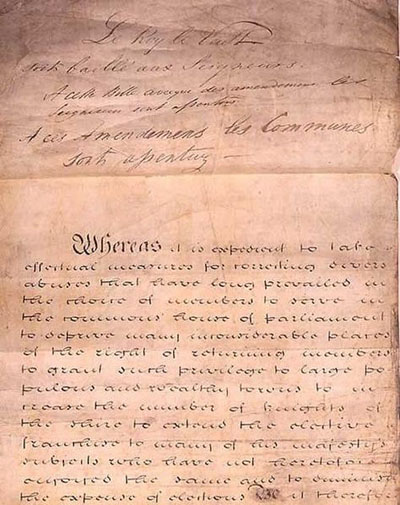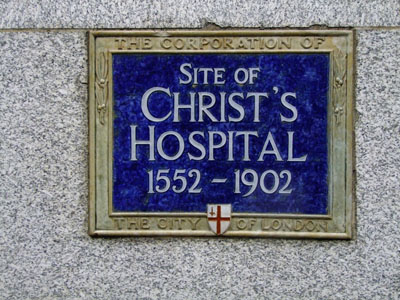What You Need to Know:
• The electoral system in England was overhauled with the Reform Act of 1832, which attempted to do away with such practices as rotten boroughs and shadow voters. Proper electoral districts were formed and voter registration was required. Voters, however, were limited to men who were either landowners or long-term lease holders. It was not until 1884 that the electoral rolls became more complete and included more men.
• One nice thing about early electoral rolls is that they would list how the individual met the voting criteria. Often reference would be given in the roll to the size of the person's property, whether they were the owner of the property and (sometimes) even the person's occupation.
• Electoral rolls are an often overlooked source of genealogy information. Electoral rolls, for example, are an excellent substitute for recent census records that have not yet been released to the public. Electoral rolls were generally produced every year, unlike 10-year census records. Thus, electoral rolls are a good way to confirm an ancestor’s address between census dates. This is particularly important for people who lived in cities (such as London), where people tended to move more frequently than people who lived in the country.
• In England, electoral rolls go back before 1832 in some regions, but few survive before this date.

• England further revised its electoral system in 1918 (at the end of World War I) giving all males over the age of 21 the right to vote, even those who were not land owners. Some women over the age of 30 were also given the right to vote provided they met certain conditions (they had to be a member or married to a member of the Local Government Registrar).
• One of the nice things about the 1918 electoral register is that it lists soldiers who were still overseas. This can provide a good cross check for anyone searching for military records.
• Women did not receive the full right to vote until 1928, at which time all women over the age of 21 should be included in local electoral rolls. Therefore, after 1928 all adults should be on the electoral rolls (except those adults ineligible to vote due to incarnation in prisons or mental hospitals).
• Historic electoral rolls can often be found in local libraries. Few have yet to be published on the internet.
• Electoral rolls are organized by polling district, which were not the same as parish districts or civil registration districts. This can make them difficult to find and search. As well, electoral rolls are usually not indexed by name. Therefore, in order to find your ancestor in an electoral roll it is necessary to know their exact street address. This needs to be obtained from other documents, such as a marriage certificate, which does list addresses.
• Ancestors were usually put on electoral rolls from the age of 21 until they died. Thus, if you find an ancestor has dropped off the electoral roll system that usually means they either died or emigrated. This is a good tip to help you pinpoint the year in which someone died or emigrated. You can also reverse the process and count backwards from the time a person first appeared on an electoral roll. Counting back 21 years will determine the year someone was born.
• Ancestry.co.uk has a very nice collection of electoral rolls for the city of London that covers the period 1835 to 1965.
• The British Library announced in March 2011 that they would be digitizing their collection of electoral rolls and putting the collection on the internet. The contract for digitization was put out for competitive tender and FindMyPast was the successful bidder. The digitization is expected to go online sometime in 2012. The records will be indexed by name, making it easier to pinpoint individuals. This will help overcome the traditional search problem associated with electoral rolls. Some electoral rolls from select regions are already available on BritishOrigins.net
English Genealogy in the 1900s
What You Need to Know:
• If your ancestor was born in a hospital or spent time in a mental asylum, there should be a separate hospital record of the event. For example, a record of birth should be available at a hospital independent of a civil birth certificate. Thus, if you are having difficulty tracking down a birth certificate, consider researching local hospital records.

• English national health laws require that health records be sealed from public inspection for 100 years. Therefore, the most recent heath records available to genealogists are from 1911.
• Historic hospital records are either kept on site at the hospital (if it still exists) or deposited in a local archive. It is rare to find historic hospital records on the internet.

